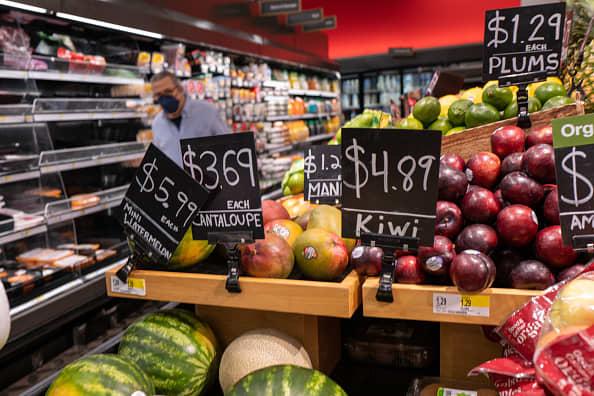Posted on October 11, 2022

With costs rising practically throughout the board, it is getting tougher to pay for fundamental requirements, inflicting some Americans to fall behind.
To that time, 32% of adults have paid a invoice late in the previous six months, in accordance to a current report by LendingTree — and 61% of them mentioned it is as a result of they did not have the cash readily available to cowl the value.
About 40% mentioned they are much less in a position to afford their bills in contrast to one yr in the past, the report discovered. Most mentioned they fell behind on a utility invoice, bank card cost or cable or web invoice.
More from Personal Finance:
Consumers prioritize Netflix, Amazon Prime over groceries, fuel
Nearly half of Americans make this error with bank cards
These steps may help you sort out tense bank card debt
“Life is getting more expensive by the day, and it’s shrinking Americans’ already tiny financial margin for error down to zero,” mentioned Matt Schulz, LendingTree’s chief credit score analyst.
“Unless they’ve been able to increase their income, millions of Americans have had to make sacrifices because of inflation to pay the bills,” he added.
There is little doubt persistent inflation has weighed on shoppers, leaving more Americans dwelling paycheck to paycheck.
The client value index, which measures the common change in costs for client items and providers, rose a higher-than-expected 8.3% in August, pushed by will increase in meals, shelter and medical care prices.
Although actual common hourly earnings additionally rose a seasonally adjusted 0.2% for the month, they remained down 2.8% from a yr in the past, leaving more households stretched skinny.
Americans should create a contingency plan.
Allen Amadin
president and CEO of American Consumer Credit Counseling
Those struggling to afford their day-to-day life-style have a tendency to rely more on bank cards and carry a better month-to-month stability, making them financially weak.
“Americans must create a contingency plan to handle not only increasing interest rates but also high prices on basic necessities,” mentioned Allen Amadin, president and CEO of American Consumer Credit Counseling.
Most monetary consultants suggest having a minimum of six months’ price of bills put aside in an emergency fund. However, Rose Niang, director of monetary planning at Edelman Financial Engines, advises shoppers to save nearer to 12 months, contemplating inflation and a transparent slowdown in the economic system.
